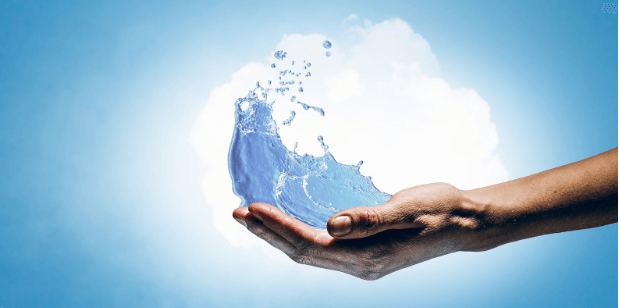Anthonynytro
Veteran
- Joined
- Mar 2, 2021
- Messages
- 37
- Age
- 32
- Location
- Ontario
- Country
- Canada
- Snowmobile
- 2009 Yamaha nytro xtx
2007 Yamaha Phazer GT
Hello all!
I own a 09 nytro xtx and a 07 phazer GT
I don't own an enclosed trailer...bummer, I have a open deck with a salt shield and both sleds have OEM covers. After each haul I do I will stop off at at car wash close to my house and powerwash all the salt and ice that collected under the covers and than run them for abit than park them outside again.
Issue I'm having is over the past 2-3years I've been chasing electrical gremlins like corrosion in connectors and other stuff. I've read that some car washes reuse/filter the water and sometimes it just salt water washs the sleds
Is there any truth to this?
Before I bought the sled it was in amazing shape and I put dielectric grease in all the connections.
I own a 09 nytro xtx and a 07 phazer GT
I don't own an enclosed trailer...bummer, I have a open deck with a salt shield and both sleds have OEM covers. After each haul I do I will stop off at at car wash close to my house and powerwash all the salt and ice that collected under the covers and than run them for abit than park them outside again.
Issue I'm having is over the past 2-3years I've been chasing electrical gremlins like corrosion in connectors and other stuff. I've read that some car washes reuse/filter the water and sometimes it just salt water washs the sleds
Is there any truth to this?
Before I bought the sled it was in amazing shape and I put dielectric grease in all the connections.
sab2022
Expert
I can't tell you the rulle for sleds, but the rule for ATV's is house water pressure, NO pressure washers, and keep the hose moving, and search for the function and purpose of dielectric grease.
Anthonynytro
Veteran
- Joined
- Mar 2, 2021
- Messages
- 37
- Age
- 32
- Location
- Ontario
- Country
- Canada
- Snowmobile
- 2009 Yamaha nytro xtx
2007 Yamaha Phazer GT
Yes I'm aware of the damages of using a pressure washer on electrical components... Yamaha uses alot of connectors that arnt weather proof or sealed. That's why I used dielectric grease to prevent corrosion and water which is what it's designed for.I can't tell you the rulle for sleds, but the rule for ATV's is house water pressure, NO pressure washers, and keep the hose moving, and search for the function and purpose of dielectric grease.
I'm asking if car washes recycle water so I don't keep salt water bathing my trailer and sled.
Yes I'm aware of the damages of using a pressure washer on electrical components... Yamaha uses alot of connectors that arnt weather proof or sealed. That's why I used dielectric grease to prevent corrosion and water which is what it's designed for.
I'm asking if car washes recycle water so I don't keep salt water bathing my trailer and sled.
Yes they do.
Anthonynytro
Veteran
- Joined
- Mar 2, 2021
- Messages
- 37
- Age
- 32
- Location
- Ontario
- Country
- Canada
- Snowmobile
- 2009 Yamaha nytro xtx
2007 Yamaha Phazer GT
Greeeaaatt..Yes they do.
There are some car washes that advertise that they use fresh water only for the final rinse. Petro-canada used to brag about this but I don't see any information on their website these days. If you are using stall based car washes it would be good to try to talk to the owner. We have one here in town that is both stalls and a drive-thru and there is always someone there. I never bothered to ask because I have hot water taps outside even in the winter. A quick google shows that there is indeed an entire industry selling water recyclers to car washes, auto dealers, truck mechanics, etc.. Some are better than others, some seem little more than gravity driven settling tanks. One thing is clear, most if not all car washes are going to recycle water, its just economics.

 columbiatireauto.com
columbiatireauto.com
An example diagram of a more comprehensive water recycling system.
None of this means that the car washes are the source of your problem. Simply storing your sleds outside will expose electronics, specifically connectors, to advanced corrosion (galvanic corrosion) from simple exposure to humidity. Most metals corrode when wet, some metals do this faster in the presence of electricity. This is not a simple thing to address. Dielectric is meant to isolate the connectors from weather but it has to be renewed fairly often, I would think the end of every season. This means going through the major connection points, blasting them with contact cleaner, and applying dielectric ONLY to the plastics and between the mating surfaces of the plastics. Also the backs of the connectors where the wires enter/exit. You do NOT want to put the dielectric grease on the contacts themselves. That will just cause other problems. (dielectric grease is non-conductive, it is an insulator). For further protection you can get carbon based conductive grease. This is best used for grounding blocks (blocks themselves or between blocks and frame) where there is little chance of creating a conductive bridge between adjacent pins causing a short.

The High Value of Recycled Water in an Automatic Car Wash | Columbia Auto Care & Car Wash
Is washing your car bad for the environment? Debates rage over the idea that an automatic car wash uses more water than you would if you washed your vehicle
 columbiatireauto.com
columbiatireauto.com
An example diagram of a more comprehensive water recycling system.
None of this means that the car washes are the source of your problem. Simply storing your sleds outside will expose electronics, specifically connectors, to advanced corrosion (galvanic corrosion) from simple exposure to humidity. Most metals corrode when wet, some metals do this faster in the presence of electricity. This is not a simple thing to address. Dielectric is meant to isolate the connectors from weather but it has to be renewed fairly often, I would think the end of every season. This means going through the major connection points, blasting them with contact cleaner, and applying dielectric ONLY to the plastics and between the mating surfaces of the plastics. Also the backs of the connectors where the wires enter/exit. You do NOT want to put the dielectric grease on the contacts themselves. That will just cause other problems. (dielectric grease is non-conductive, it is an insulator). For further protection you can get carbon based conductive grease. This is best used for grounding blocks (blocks themselves or between blocks and frame) where there is little chance of creating a conductive bridge between adjacent pins causing a short.


02ViperMody44
Lifetime Member
- Joined
- Jan 26, 2009
- Messages
- 580
- Location
- Utica, NY
- Country
- USA
- Snowmobile
- 2020 Sidewinder SRX
2013 Yamaha XTX
- LOCATION
- Old Forge, NY
- YAHOO
- ramody44@yahoo.com
I truly find that hard to believe, if they were recycling water, from where, what drips onto the floor? If so, your car, especially if a dark colored one, would show a white haze on the paint and on the windows.Yes they do.
And yet, 10 seconds on google will show you its true.I truly find that hard to believe, if they were recycling water, from where, what drips onto the floor? If so, your car, especially if a dark colored one, would show a white haze on the paint and on the windows.


02ViperMody44
Lifetime Member
- Joined
- Jan 26, 2009
- Messages
- 580
- Location
- Utica, NY
- Country
- USA
- Snowmobile
- 2020 Sidewinder SRX
2013 Yamaha XTX
- LOCATION
- Old Forge, NY
- YAHOO
- ramody44@yahoo.com
I just learned something today! Ha! At least they state it's at a lot less diluted concentration, with less salinity than the salt sticking to your vehicle...So there's that!And yet, 10 seconds on google will show you its true.
I just learned something today! Ha! At least they state it's at a lot less diluted concentration, with less salinity than the salt sticking to your vehicle...So there's that!
Disappointing, but it is what it is. I put a hot water tap in the garage a few years ago and its been a blessing. Locally the independent car washes are owned by the same guy so I am going to have a look around and discuss this with them as neither has the facility for recycling as far as I can tell. Or they just don't bother filtering at all. Would be good to know either way.
9Lives
Newbie
Be careful using dielectric grease on pressure sensors, (MAP, altitude) they have a small hole in the sensor which may go through the electrical connector to get a atmospheric reading, if you plug this up with grease it will not longer be accurate and may cause running issues.
Similar threads
-
This site uses cookies to help personalise content, tailor your experience and to keep you logged in if you register.
By continuing to use this site, you are consenting to our use of cookies.

